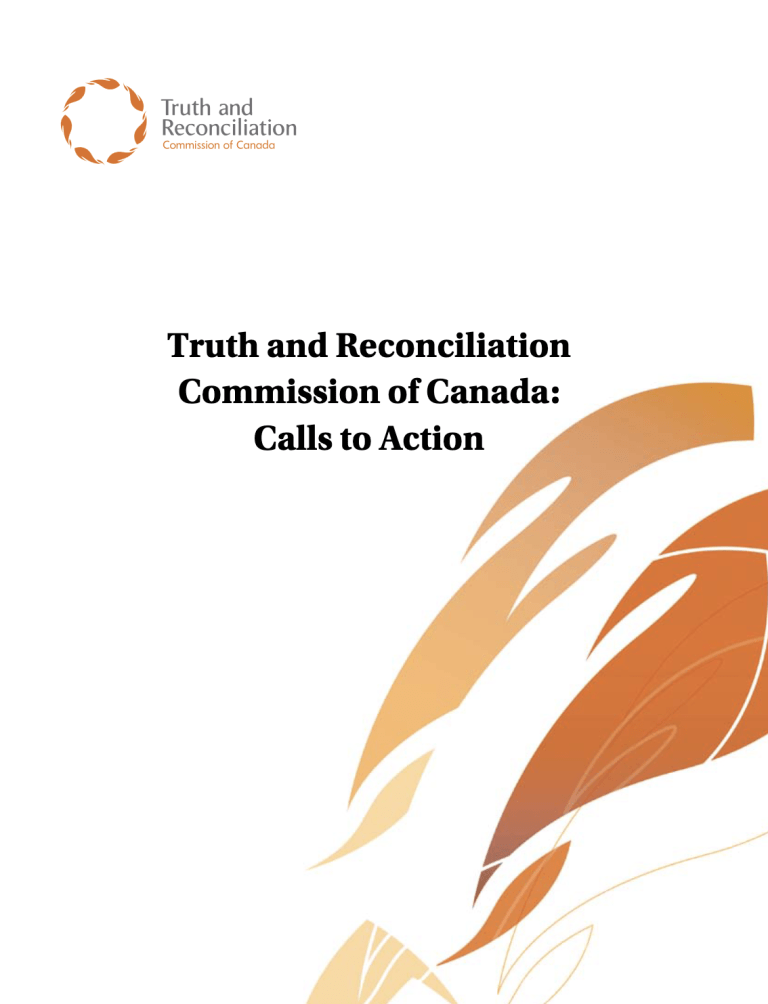43 search results
for
Public services
Legacy
Justice
Recommendation 28: We call upon law schools in Canada to require all law students to take a course in Aboriginal people and the law, which includes the history and legacy of residential schools, the United Nations Declaration on the Rights of Indigenous Peoples, Treaties and Aboriginal rights, Indigenous law, and Aboriginal–Crown relations. This will require skills-based training in intercultural competency, conflict resolution, human rights, and anti-racism.-
Category and theme:
Audience:
Groups affected:
Location of recommendation:
Legacy
Justice
Recommendation 29: We call upon the parties and, in particular, the federal government, to work collaboratively with plaintiffs not included in the Indian Residential Schools Settlement Agreement to have disputed legal issues determined expeditiously on an agreed set of facts.-
Category and theme:
Audience:
Groups affected:
Location of recommendation:
Legacy
Justice
Recommendation 30: We call upon federal, provincial, and territorial governments to commit to eliminating the overrepresentation of Aboriginal people in custody over the next decade, and to issue detailed annual reports that monitor and evaluate progress in doing so.-
Category and theme:
Audience:
Groups affected:
Location of recommendation:
Legacy
Justice
Recommendation 31: We call upon the federal, provincial, and territorial governments to provide sufficient and stable funding to implement and evaluate community sanctions that will provide realistic alternatives to imprisonment for Aboriginal offenders and respond to the underlying causes of offending.-
Category and theme:
Audience:
Groups affected:
Location of recommendation:
Legacy
Justice
Recommendation 33: We call upon the federal, provincial, and territorial governments to recognize as a high priority the need to address and prevent Fetal Alcohol Spectrum Disorder (FASD), and to develop, in collaboration with Aboriginal people, FASD preventive programs that can be delivered in a culturally appropriate manner.-
Category and theme:
Audience:
Groups affected:
Location of recommendation:
Legacy
Justice
Recommendation 34: We call upon the governments of Canada, the provinces, and territories to undertake reforms to the criminal justice system to better address the needs of offenders with Fetal Alcohol Spectrum Disorder (FASD), including:- Providing increased community resources and powers for courts to ensure that FASD is properly diagnosed, and that appropriate community supports are in place for those with FASD.
- Enacting statutory exemptions from mandatory minimum sentences of imprisonment for offenders affected by FASD.
- Providing community, correctional, and parole resources to maximize the ability of people with FASD to live in the community.
- Adopting appropriate evaluation mechanisms to measure the effectiveness of such programs and ensure community safety.
-
Category and theme:
Audience:
Groups affected:
Location of recommendation:
Legacy
Justice
Recommendation 35: We call upon the federal government to eliminate barriers to the creation of additional Aboriginal healing lodges within the federal correctional system.-
Category and theme:
Groups affected:
Location of recommendation:
Legacy
Justice
Recommendation 37: We call upon the federal government to provide more supports for Aboriginal programming in halfway houses and parole services.-
Category and theme:
Audience:
Groups affected:
Location of recommendation:
Legacy
Justice
Recommendation 40: We call on all levels of government, in collaboration with Aboriginal people, to create adequately funded and accessible Aboriginal-specific victim programs and services with appropriate evaluation mechanisms.-
Category and theme:
Audience:
Groups affected:
Location of recommendation:
Reconciliation
National Council for Reconciliation
Recommendation 54: We call upon the Government of Canada to provide multi-year funding for the National Council for Reconciliation to ensure that it has the financial, human, and technical resources required to conduct its work, including the endowment of a National Reconciliation Trust to advance the cause of reconciliation.-
Category and theme:
Groups affected:
Location of recommendation:
